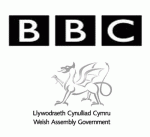 Historically print based media has relied heavily on newspaper advertising sales with most business models represented by 40 – 20 – 20 revenue streams. Thus recruitment, property and motors.
Historically print based media has relied heavily on newspaper advertising sales with most business models represented by 40 – 20 – 20 revenue streams. Thus recruitment, property and motors.
In today’s climate these advertising cash pots have fallen sharply, not forgetting the impact a more more mature digital market is having on these incomes. Whilst all have invested and spread themselves across the digital marketplace, the competition is fierce with many more threats apparent than the days before broadband.
Digital advertising has still yet to peak and is predicted to account for 12% of overall advertising spend in 2009. Whilst advertising budgets are not likely to increase, the digital market share is predicted to double in the next 18 months. Thus based on a degree of overall maturity in digital media and proven ROI. It should also be noted that The UK’s digital economy at present accounts for about 8% of our national income
So, how can print based media giants retain their dominant market share?
Well a life line has become apparent at the expense of ITV and paid for yet again by us, the taxpayer.
Here in Wales a former editor of the Independent newspaper, Professor Ian Hargreaves is carrying out a media review for the Welsh Assembly Government. This follows a recent statement from Labour Assembly Minister, Huw Lewis. who is pushing for grants to be provided to set up a series of “super local” television and radio channels run by newspapers in Wales. CLICK HERE to read full story and CLICK HERE for Huw Lewis’s views.
This has been followed by A group of MPs who have warned that English-language news viewers in Wales could have no choice of broadcaster by 2010. The Welsh Affairs Select Committee said ITV’s “bleak financial outlook” meant the BBC would be the only news provider within a year. CLICK HERE to read full story.
Mr Lewis said: “Wales is perfectly set up to become a centre of excellence for journalism, and yet everywhere we look we see local papers struggling and axing staff, or else ITV are forcing through drastic cut backs.
“Even flagship papers like the Western Mail, South Wales Argus, Daily Post and the Echo – they are all looking to make savings and are losing skilled staff as a result.
Whilst the growing uptake of a digital revolution has naturally gained momentum over the last few years, expect this to intensify when the impact of the UK Governments Digital Britain report is fully actioned.
Gordon Brown said “Just as the bridges, roads and railways built in the 19th century were the foundations of the Industrial Revolution that helped Britain to become the workshop of the world, so investment now in the information and communications industries can underpin our emergence from recession to recovery and cement the UK’s position as a global economic powerhouse.”
He continues “These technological advances will be accompanied by a revolution in content, which they allow. We must develop and sustain public service content, such as commercial regional news, which we all value and rely on, ensuring that it can be delivered across multiple digital outlets by a range of providers accessible to all.” Read fully story CLICK HERE
So what does it all mean?
In simple terms newspaper groups may move into the TV news marketplace, thou via the web not TV. ( Until TV and web are viewed via the same device that is, but that’s another story). The question remains, will they create additional news rooms? or, in the short term use proposed BBC interactive news streams?
If newspaper groups really want to increase their market share and ultimately expand their reach, and The Welsh Assembly seek to continue their push to create more employment opportunities in the media sector….
…..surely this is a no brainier?
Leave a comment